
Learning to learn in English
.pdf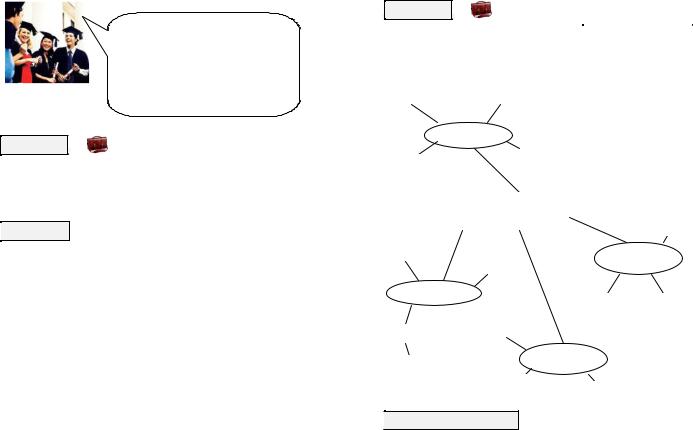
Thereareno “ideal learners”.The important thing isto understand what kind of learner youare,develop your strengthsand overcomeyour weaknesses. Knowing your learning stylewillhelp youto develop coping strategies to compensate for your weaknesses and capitalizeon yourstrengths.
Get real |
Carry out some self exploratory work. Go online. Take a test on Learning Styles and find out your style and learning preferences. Report back to the class.
 Speaking
Speaking
Divide into groups according to your learning styles. Work out the strategies that will help you to achieve good results in English language learning. Discuss your strategies in class.
Examples:
Group 1
Visual learners: When you try to remember things, close your eyes to get a “picture” or image of the information to help to recall.
Group 2
Tactile learners: Be directly engaged; move and act things out
Group 3
Auditory learners: When you study by yourself, talk out and read your notes and textbook out loud. Find a room where you won't bother.
Writing |
Copy this mind map and complete it for |
Managing your learning: |
|||
Mind maps 1 |
||||
yourself. Use this information to write the story |
Mind mapping is a good way to |
|||
of your English language learning. |
organize ideas before writing. |
|||
1. Write down the most |
||||
|
|
|
|
important word or short |
3. When ..? |
3. Why ..? |
phrase in the centre. |
||
2. Post other important concepts |
||||
|
|
|
|
and their words in the circles. |
|
|
|
|
3. Add other key words and |
|
|
|
|
ideas. |
|
|
2. Background |
4. As you expand your map, |
|
|
|
tend to become more specific |
||
|
|
|
|
|
|
|
3. How long ..? |
or detailed |
|
3. Where .? |
|
|||
|
|
|
||
|
|
|
|
|
|
|
1. My Language Learning Story |
|
|
|
|
|
|
3. ..? |
3. ..? |
|
|
|
2. Strong points |
|
|
3. ..? |
|
|
|
|
|
|
|
2. Weak points |
3. Strategies 3. I’m an |
|||
|
|
|
|
|
|
|
|
|
auditory type |
|
|
3. ..? |
|
of learner so … |
3. Strategies |
|
|
||
|
|
|
||
4. ..? |
|
2. Perspectives |
||
|
in learning |
|
||
|
|
3. ..? |
|
|
3. Purpose …
 In the Realm of Science
In the Realm of Science
1. Read aloud the following numbers.
20 |
21 |

13 |
30 |
307 |
69 |
145 |
90 |
850 |
615 |
1,520 |
5,000 |
|
100,000 |
5,000,000 |
|
|
|
||
When do we say and? |
|
|
|
|
|
|||
2. Practise the following phone numbers. |
|
|
||||||
095 837 95 21 |
0172 375 4431 |
8 918 506 4348 |
8 902 771 1129 |
|||||
3. Practise the following dates:
1995 |
nineteen ninety-five |
|
(divide the number into two parts) |
2000 |
(the year) two thousand |
2007 |
two thousand and seven |
|
(twenty hundred and seven) |
2025 |
twenty twenty-five |
April 1st |
April the first/The first of April |
|
(use ordinal numbers) |
20:00 |
eight o'clock/eight p.m. |
It is interesting to know
15th December 2007 (British English)
December 15, 2007 (American English)
How do you say these dates? |
|
|
|
||
December 12, 1987 |
26th August 2001 |
9th February 1900 |
|||
31st September 2000 |
June 14, 1846 |
March 3, 1966 |
|||
How do you say the time? |
|
|
|
|
|
14:45 |
8:15 |
23:10 |
12:30 |
18:55 |
21:00 |
Unit 1. Progress Monitoring
In this unit you have worked on the following vocabulary related to the topic “Ways
of learning” |
|
|
|
to take/to make notes on |
to do a course in |
||
|
to take exam in |
|
to improve knowledge/skills |
|
a tutor; to tutor |
to help with/to do an assignment |
|
|
to keep a notebook |
|
to focus on |
|
learning preference/style |
|
self exploratory work |
|
to organize ideas |
|
to take classes in (subject)/on (time) |
|
to cope with problems |
|
to achieve results |
|
to gain knowlede |
|
lifelong learning |
Tick (V)thepoints you areconfidentabout and cross (X) theones you need to revise.
Unit 2 |
Study Smart, Not Hard |
 Lead-in
Lead-in
1.Are you satisfied with the results you achieved at school?
2.Do you know how to study effectively?
3.Do you think studying at a university is different from that at school? Why?/Why not?
4.What makes an effective learning? Work in groups of 3–4 and come up
with your ideas (e.g., motivation, …, ….).
 Reading
Reading
1.How manyEnglish equivalentsto the Russianword цель do youremember? Give as many equivalents as you can.
2.Read the text, find some other equivalents for the word and write them down.
3.Think of a proper title for the text. Explain your choice.
** *
“Goals equal success”, says Paul Shearstone in his article on goal setting. Studies have shone, he argues, that “only three percent of the population are engaged in some form of goal setting and only one percent, on average, write them down. … No wonder that one percent that write goals down are the richest people around the world.”
Goal setting is a powerful technique that can improve all areas of your life. By deciding on your goals and targets you will know what you want you want to achieve, what to concentrate on. In your studies it will help youto focus your effortsinsearch for professional skillsand knowledge, and to organize your resources.
It's good to have big goals – a vision of what you want to achieve – and smaller and measurable objectives with exact time frames. By measuring their achievement, you will be able to see what you have done and what you are capable of. It will help you to move step-by-step towards your goal (to work towards your aim), at the same time improving your self-confidence.
22 |
23 |
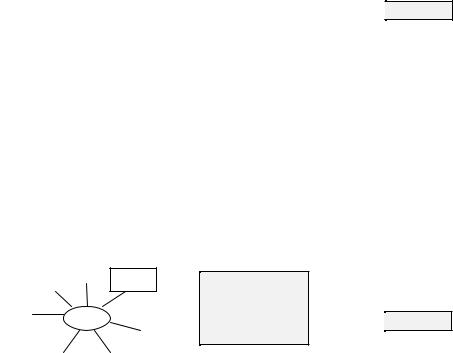
But this is only possible if you follow a few simple rules in your planning process:
Express your goals positively. The more positive instructions you give yourself, the more positive results you will get.
Avoid setting general and unclear goals, putting in dates, times and amounts.
Break big goals down into a number of small tasks.
Do not set goalstoo low or too high. It isimportant that you can achieve your goal without losing motivation.
When you have several goals, set priorities.
And most important of all: WRITE YOUR GOALS DOWN.
«The difference between a goal and a dream is the written word.» – Gene Donohue
(Adapted from: list of Internet sites used)
What do you think?
Are the rules described in the text easy to follow? Why/why not?
According to Gene Donohue what is a principal difference between a goal and a dream?
Rewrite the statement about learning English you have made in Unit 1 Lead-in task using the recommendations given in the text. 
Focus on language
1.Look through the text and write down possible combinations of the word goal with 8 verbs. Complete the word web below.
…Managing your learning:
Mind maps 2
Mindmaps maybe agood solution if you have a problem
set |
goal |
rememberring new items of |
vocabulary and word |
||
|
|
collocations. They areusually |
|
|
|
|
|
called word webs. |
2.Draw a word web for the verb to improve. Consult a dictionary if necessary.
3.Work in5 teams. Eachteamcompletes wordwebs forthe verbstoachieve, to set, to organize, to get and to lose using its own colour marker. The word webs are rotated every 1 minute, then the results are checked in
class. The team that works out the majority of combinationsisthe winner.
 Listening
Listening
1.Discuss as a class.
Have you ever tried to improve your memory? What techniques did you use? Were they of help?
How do you usually study for exam?
2.You are going to listen to an expert who gives some study tips on how to maximize our ability to learn and remember new information. Listen to the talk and mark the sentences below true (T) or false (F).
a)Andrew Maze is a psychologist at the University of Manchester.
b)It is not a very good idea to try and learn a lot in one go.
c)‘Processing’ or organizing information helps to learn it faster.
d)Don’t even try to memorize things before you go to sleep.
e)To efficiently consolidate the information you are learning don’t learn a lot of things during one day.
What do you think?
Do you agree with the expert’s advice?
Does every student with good memory make a successful learner? Why?/Why not?
Do you think you are a successful learner? Why?/Why not?
How do you think you can improve your learning strategies?
 Reading
Reading
1.Read what some former studentssay about how to study effectively. Write out the recommendations and advice they give.
24 |
25 |
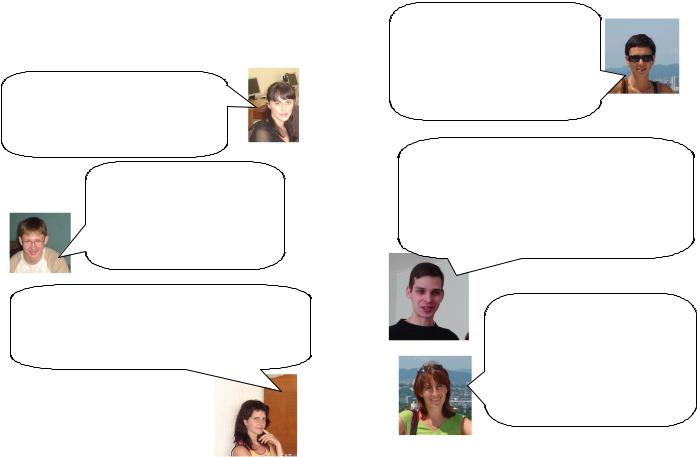
What are effective study habits?
No two people study the same way and there is little doubt that what works for one person may not work for another. However, there are some general techniques that seem to produce good results. Our reporter, Barbara Brown, interviewed some former students about their effective study habits.
Elena Hora`akova, Czech Republic
“I wish I had known how easy it is to approach a teacher if you need help. I wasted a lot of time! Professors usually are willing to help out students who need some extra help if they believe you are making a genuine effort to learn.”
Roger Blackstone, USA
“Don’t be shy in class. Be an aggressive learner – it is your education and your money. If you are in doubt about any directions, material or due dates, ask your professor. Most likely, you are not the only student in class who doesn’t get it.”
Natasha Surkova, Russia
“I strongly advise you to plan for a technology failure, I mean never wait until the night before your paper is due to print it. You might be out of toner or the printer might jam. Always back up your work on another disk. Print your paper the day before and back up all your work on a removable drive.”
Corine Testini, Italy
“College is a matter of responsibility. You are responsible for yourself and yourself alone! Don’t expect that someone, such as your professor, will ask about assignments you haven’t turned in. Don’t waste your time or money skipping classes. Read your syllabi to find out what’s expected of you.
Matt Scout, UK
“Avoid studying just after your meals. Never study within 30 minutes of going to sleep. If possible, study no more than 30-40 minutes at a stretch. Many students achieve better results by studying for short periods with breaks in between. Of course it all depends on what you’re trying to study but generally take a break after a period of study. I also recommend to take study breaks away from your desk or wherever you are studying. ”
Kristine Kershsten, Sweden
“I’ve found it very useful to study every day and attend every class even if I wasn’t well prepared ‘cause class time is the best opportunity to practise, clarify and sort out the material you’re working at. Even if attendance is not compulsory, your professor will notice who is in class. Remember, professors are interested in the subjects they teach and notice those students that also show interest.”
26 |
27 |
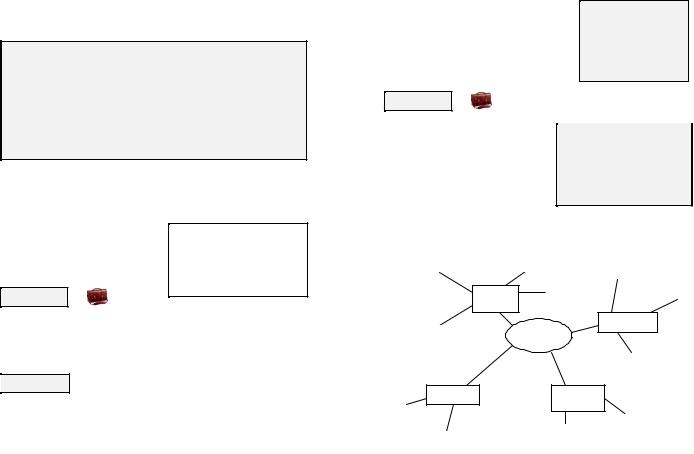
2. Which of the recommendations do you follow? Why?
Focus on language
Study these examples of advice.
Giving advice
To give advice we can use
imperative:
Express your goals positively.
Do not set goals too low or too high.
Avoid setting general, intricate or unclear goals.
modals should or ought to:
You should be honest about how plans are going. (=You ought to be …)
had better – advice close to warning:
If you want other people really help you, you’d better inform them in advance.
Second Conditionals:
If I were you, I would set priorities first.
Practice
1.What other ways to give advice do you know? Give your own examples. Example: It’s a good idea to set priorities when you have several goals.
2.Read Kathy Brown’s letter describing the problem she faces with her studies. As a class give her some helpful advice.
Get real |
“In high school I was able to get all or most of my work done without much of a problem. But here in college, there’s so much material to read and absorb, and papers and exams take longer to finish and study for that sometimes I feel like I can hardly keep my head above this pool of work.” – Kathy Brown
Carry out some self exploratory work. Go online and take a Time management test to see where your time goes and report the results in class.
 Speaking
Speaking
Ingroupsof3–4 thinkofanyother tipshow toarrange yourdaytoget maximum output. Compare with the other groups. Which of these do you follow?
Example: write down daily tasks
__________________
__________________
Make use of the phrases from the Tool box.
Add a reason to the advice where you think it is appropriate.
Tool box: Giving advice
Avoid … You/one should … Don’t …
If … , you’d better … I recommend/advice …
It’s a good idea/technique/… If I were you, I would …
Writing |
1.Answer the questions.
What kind of records do studentsusually keep?
Have you ever kept a diary?
Do you think it can help in studies? In what way?
Managing your learning
Itis useful to keep arecord of what you study. This might bea record for your work and a record for your feelings about thecourse. The latter will allow you to see whether you areprogressing, what your difficulties are, as well as formulate your objectives and analyze your distractions.
2. Look at the mind map and discuss possible contents for a learner diary. How would you like to organize your learner diary?
your progress |
feelings about class |
|
activites |
||
|
nobody |
|
Whatto |
..? |
|
..? |
||
include? |
|
|
|
Who sees it? |
|
.. ? |
Learner |
|
diary |
||
|
||
|
my teacher |
|
Why do it? |
How often |
|
..? |
to write? |
|
|
||
|
..? |
|
..? |
every |
|
week |
||
|
28 |
29 |

3. Think about what you have done in the last week in your English classes and write an entry for your learner diary.

 In the Realm of Science
In the Realm of Science
Words of the Latin origin are widely used in many languages. English and Russian are not the exceptions, e.g.: консенсус, кворум, P.S., quantum, etc.
1.Pay attention to the correct pronunciation in English of the following abbreviations:
Abbreviation |
Latin |
Russian equivalent |
|
|
|
A.C. |
Ante Christum |
до нашей эры |
A.D. |
anno Domini |
нашей эры |
vs |
versus |
против |
et al. |
et alii |
и другие |
P.S. |
post scriptum |
постскриптум |
etc. |
et cetera |
и так далее |
i.e. |
id est |
то есть |
p.m. |
post meridiem |
пополудни |
NB |
nota bene |
обрати особое внимание |
e.g. |
exempli gratia |
например |
v.v |
vice versa |
наоборот |
a.m. |
ante meridiem |
до полудня |
2. Match Latin and English equivalents.
i.e |
for example |
e.g. |
B.C. (before Christ) |
etc. |
that is |
at al. |
and so on |
A.D. |
and the others |
3.Many English words and word parts can be traced back to Latin. The following table lists some common Latin roots.
Latin root |
Basic meaning |
Example words |
|
|
|
-dict- |
to say |
contradict, dictate, predict |
-duc- |
to lead, bring, take |
deduce, produce, reduce |
-gress- |
to walk |
digress, progress, transgress |
-ject- |
to throw |
project, reject, subject |
-pel- |
to drive |
compel, dispel, repel |
-pend- |
to hang |
depend, impend, pendulum |
-port- |
to carry |
export, report, support |
-scrib-, |
to write |
describe, subscription, |
-script- |
|
transcribe |
-tract- |
to pull, drag, draw |
attract, contract, extract |
-vert- |
to turn |
convert, divert, invert |
4.Read the most famous Latin sayings. Which one do you like most of all? Comment on it.
Veni, vidi, vici Через тернии к звездам
Per Aspera AdAstra
Пришел, увидел, победил
Discendodiscimus
Ямыслю, значит
ясуществую |
Cogito, ergosum |
|
Обучая, учимся |
Unit 2. Progress Monitoring
In this unit you have worked on the following vocabulary related to the topic “Ways
of learning” |
|
|
|
to set/achieve/write down goals |
|
to set priorities |
|
|
to manage time |
|
study habits |
to be responsible for oneself |
|
to waste time |
|
|
to attend/miss/skip classes |
|
to keep a diary |
|
to take study breaks |
|
to keep records for |
to ask for/give advice |
|
to gain success in sth |
|
|
long-tem goals |
|
to monitorprogress |
Tick (V) the points you are confident about and cross (X) the ones you need to revise.
30 |
31 |
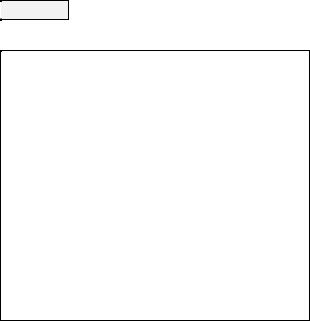
Unit 3 Revise & Practise
1. Explain the similarity and difference between these pairs.
mind |
– |
intelligence |
knowledge |
– |
skills |
2.Work in groups of 2–3. Interview your fellow students how they learn new vocabulary, new grammar; develop their speaking, writing, listening, reading skills. Organize their ideas into a mind map. Report on the most popular techniques in class.
3.Read the following sayings. Comment on the one you like most.
Make time your friend not your enemy.
Habits can be the best of friends or the worst of enemies.
In examining the potential of individuals, we must focus on their strengths and not just their mistakes.
4.Give school-leavers advice on how to become a successful student.
Progress Test
1.Complete the paragraph with the appropriate present tense form of the verbs in brackets.
Discovering your learning style … (be) an excellent way to learn about yourself and the way you … (absorb) information best. I … (be) glad I … (complete) the Learning Style test because I … (plan) to use thisknowledge of myself in the future.
2. Spot the odd word out. |
|
|
||
a) |
e.g. |
et cetera |
v.s. |
that is |
b) |
grammar |
vocabulary |
language |
pronunciation |
c) |
learning |
self exploratory work |
teaching |
studies |
3.Complete the sentences with the appropriate Latin abbreviation.
a)We talked about learning styles, preferences, variousleaning strategies,
….
b)There are different types of language learners, …: a teacher depender, a risk taker, a child-like conscious learner, a translator, a reader and a systems learner.
c)Youcanstartwithamultiple intelligencetest andproceed toa learning style test or … .
d)If you want to succeed in your studies you should follow the key principles … goal setting, time management and effective study habits.
e)…! The course starting date is September 5.
f)Research byCharlesBabbage … inthe 18th century laid the cornerstone to the development of modern computers.
 Self study
Self study
Do some self exploratory work to learn more about yourself. 
Way To Success
Studying at university makes very different demands on you compared with school. In higher education the focus is on you: you're given much more responsibility for your studies, you will be expected to study on your own much more than you may have been used toas well asthe scopeof studyis muchwiderthan you havebeen used to. Tohelp you achieve better results in yourstudies do some self exploratory work. Your task isto come to understandingof yourlearningstrongand weakpointsandof yourown wayof learning.
Search the site |
http://www.ldpride.net/learningstyles.MI.htm |
Take the test on multiple intelligence http://www.ldrc.ca/projects/miinventory/miinventory.php
Report in a written form the results of the tests
QUESTIONS TO GUIDE YOU:
What is multiple intelligence?
What types of multiple intelligence are defined?
What personality type/types do you belong to?
Have you learnt new things about yourself?
Why is it important to be aware of your personality type?
How will this affect you and your studies?
Which of the practicalsuggestionsdo you find the mostuseful/possible to follow?
32 |
33 |

WHAT’S IT LIKE BEING A STUDENT?
“Genius without education is like silver in mine” Benjamin Franklin
Learning Goals
to make use of key words for efficient reading
to organize and develop your ideas into a paragraph
to fill in an application form
to write definitions of sciences
to talk about the field of science you have chosen and subject courses you study
to revisit contextual reference
to revisit subject and verb agreement

Unit 1 |
Making the Choice ofYour Life |
 Lead-in
Lead-in
1.Choosing a university at which you will spend the next few years of your life is not easy. It is important to make sure that you choose the right place to study. There are so many questions you have to answer. List the factors that influenced your choice of the university, e.g.:
university location
fields of study
…
…
…
2.How did you get information about the university/faculty you study at: through University Prospectus, University Open Days, from your friends, etc.?

 Reading
Reading
1.Read quickly the advertisement of the Massachusetts Institute of Technology and try to guess what the words below mean:
Sorority |
Faculty |
Fraternity |
Prospectus |
Accommodation |
Campus |
Staff |
Department |
Alumni |
2.Read the advertisement again. Take notes under the following headings:
Levels of study:
Fields of science:
Accommodation provided:
Institute structure:
Number of students:
Location:
Recognized as one of the best schools in the United States, the Massachusets Instutute of Technology offers a wide range of accredited academic programs at the undergraduate and graduate levels in:
biological and chemical engineering |
material science |
computational and systems biology |
management |
nuclear science and engineering |
architecture |
foreign languages and literature |
economics |
computer science |
history |
•The Massachusetts Institute of Technology -- a coeducational, privately endowed research university -- is dedicated to advancing knowledge and educating students in science, technology, and other areas of scholarship that will best serve the nation and the world in the 21st century.
•MIT offers a wide range of accommodation:
6 campus houses for graduates
35 MIT - affiliated fraternities and sororities Residence Halls for undergraduates
•5 Schools -- Architecture and Planning, Engineering, Humanities, Arts, and Social Sciences, Management, and Science -- and the Whitaker College of Health Sciences and Technology
•33 degree-granting departments, programs, and divisions
•a great deal of research and teaching takes place in interdisciplinary programs, laboratories, and centers whose work extends beyond traditional departmental boundaries
•10,000 undergraduate and graduate students
•47 alumni, faculty, researchers and staff have won Nobel Prizes
•located on 168 acres that extend more than a mile along the Cambridge side of the Charles River Basin
|
|
(Adapted from MIT Web site) |
3. Find words in the text that mean approximately the same as these: |
||
to promote |
to stretch |
to train/teach |
to devote |
hostel/dormitory |
a graduate |
teachers (AmE) |
to finance |
learning |
4.Which words in the text match the following definitions?
officially approved that sth/sb is of an accepted quality or standard
a university or college student who is studying for the first degree
the buildings of a university or college and the land around them
a person who has a university degree
theseriousstudyofanacademic subjectand the knowledgeand methods involved
the people who work at a school, college or university, but who do not teach students
an area of land around a large river with streams running down into it
36 |
37 |

a school or an educational system where girls and boys are taught together
What do you think?
Is MIT a prestigious institution? Why?
If you had a chance would you choose MIT to study at?
What factors from this advertisement would help you to make up your mind?
Focus on Language
1. Read the paragraph. What do the words in bold print refer to?
The MIT is dedicated to educating students in science, technology and other areas of scholarship that will best serve the nation in the 21st century. It offers a wide range of accommodation for its students. A great deal of research is carried out by MIT’s laboratories and centers whose work extends beyond traditional departmental boundaries. This allows both undergraduate and graduate students gain all round educational experience and broaden their research horizons.
Contextual reference
Pronouns and adjectives are often used to link ideas together so that the text is easier to read. In this case they refer to a word or words mentioned earlier in the sentence or paragraph.
Practice
1.Read the following paragraph and highlight the words in the text that refer to the words in bold.
Cambridge, US is a unique community with a strong mix of cultural and
social diversity and technological innovation. Its “Squares” are rich in various international restaurants and cafes as well as unique shopping, theatres, museums, and historic sites. Located between the academic centers of Harvard and MIT, Central Square is the seat of City government and is home to a rich variety of music clubs, book shops, restaurants and clothing stores. It’s about a 12 minute walk fromKendall Square, which is the home to MIT and the heart of Massachusetts’ high tech and biotechnology industries. The main site of the MIT is located along the left bank of the Charles River. This provides a wonderful view of the Boston area. Parking in Cambridge can be expensive and hard to find so use public transportation
to get to the MIT campus.The Tech shuttle and Safe Ride shuttle provide free transportation around the MIT. But the latter runs only on weekdays.
(Adapted from http://www.cambridge-usa.org/)
 Listening
Listening
Listen to the radio programme about Washington University. Take notes under the headings below.
Location
Number of students
Per cent of international students
University Schools
Tuition fees for undergraduate students for a year
Tuition fees for the Master of Business Administration program
Scholarships and lоans
Date of the foundation
 Speaking
Speaking
1.Match the names of famous universities with the cities and countries they are located in.
University |
City |
Country |
|
|
|
MSU |
|
France |
Humboldt University |
Oxford |
|
MIT |
Cambridge, Mass. |
USA |
Tokyo Daigaku |
Paris |
|
Fudan University |
Cambridge |
Russia |
Harvard |
Berlin |
|
Oxford |
New Heaven, Conn. |
Japan |
MIPT |
Cambridge, Mass. |
|
Friedrich Wilhelm University |
Moscow |
UK |
Cambridge |
Shanghai |
|
Yale |
Tokyo |
Germany |
Sorbonne |
Bonn |
China |
38 |
39 |
